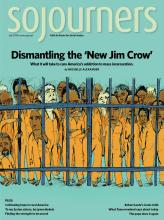THERE ARE apparently 2,000 film festivals around the world, so the format of red carpet arrivals, gala screenings, and Q&A sessions that appear all but scripted in advance have become well and truly entrenched. The best festivals recognize that their purpose is to cast a spell over filmgoers and filmmakers alike, inviting them into a spacious place where the heart of the dream that led to the film being made and the audience’s reason for watching it can beat in a community of people who thirst for art that gives life. Unsurprisingly, the biggest festivals find it hardest to pull this off—asking for contemplative mutuality at Cannes or Sundance is like looking for a Buddhist tea garden at Disney World.
Yet film festivals can be places where small is indeed beautiful. It’s only the movies that need to be big—or at least their capacity to alchemize with the viewer’s autobiographical narrative. The trappings of VIP lounges, paparazzi, and celebrity gossip are just that: They trap the aesthetic air, creating distance between people and art. Smaller festivals may be more capable of nurturing something that really feels like community.
So when at North Carolina’s Full Frame Documentary Film Festival this spring we watched Visitors, Godfrey Reggio’s follow-up to his epochal Qatsi trilogy, and the diverse faces of human beings segued into natural landscape and a Louisiana cemetery, the sense of empathic connection with an artist who spent the first 14 years of his life in New Orleans and the next 14 as a Christian Brothers monk was palpable. The impossible-to-categorize musician Nick Cave portrayed a sly version of himself in the pseudo-documentary 20,000 Days on Earth, intercutting concert footage with a role-played therapy session, visits with friends, and a neo-noir road trip, to moving effect. And the gay rights courtroom drama of The Case Against 8 played to an audience of citizens whose state had adopted a constitutional amendment to ban same-sex marriage; the showing led to near-euphoric anticipation of how a better history can reverse this tide.
Read the Full Article

